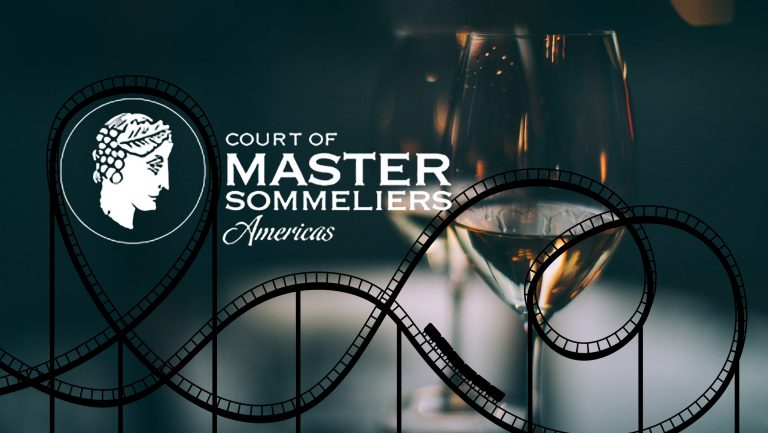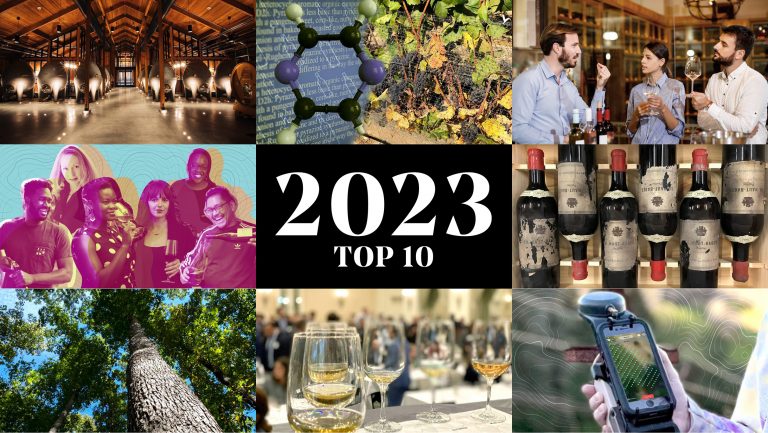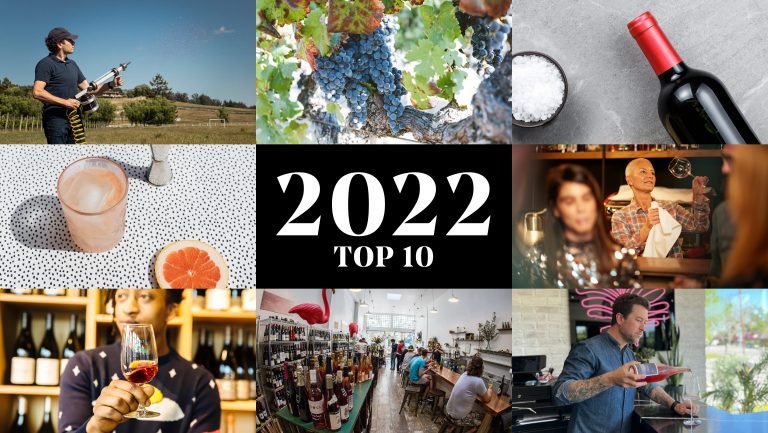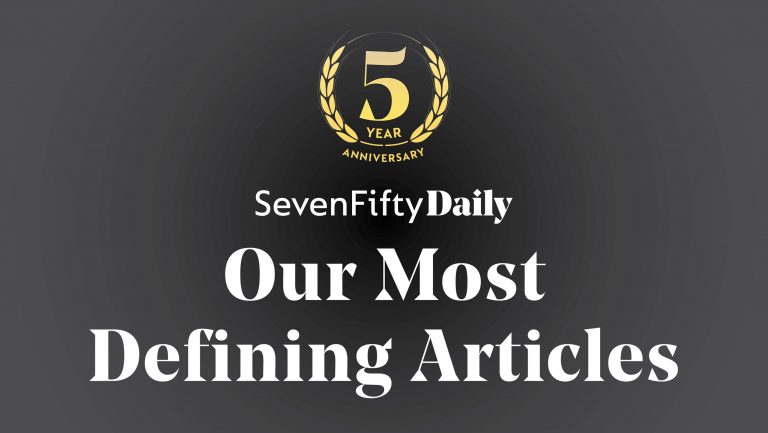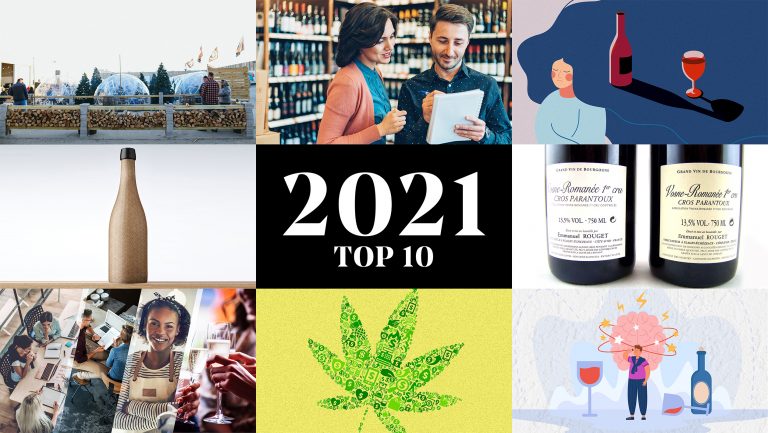“Passing the Master Sommelier exam is everything you think it’s going to be and more,” says Pete Bothwell, the New York City–based East Coast sales manager for Continuum Estate wines. “It was the purest, most emotional time of my life.” That sentiment was magnified after the 2018 Master Sommelier exam, held September 3–5, when an unprecedented 24 Master Sommeliers, including Bothwell, passed and joined the top ranks of one of the wine world’s most prestigious organizations.
But the 2018 Master Sommelier exam would soon be remembered for another reason. On October 9, 2018, the board of directors of the Court of Master Sommeliers, Americas (CMSA), announced that it was invalidating the results of the tasting portion of the exam because a proctor had disclosed confidential test information the day of the exam. The result was that 23 of the 24 new MSs were stripped of their titles. (One new MS had passed the tasting portion in a previous year.)
More than a year and three tasting exams later, 9 of the 23 candidates have regained their titles. But the specific details of what happened, including the justification for rescinding one of the wine industry’s most coveted and toughest-to-achieve titles, have never been released by the CMSA. By the event’s one-year anniversary, in September 2019, stories had emerged; Jane Lopes, the wine director of the restaurant Attica in Melbourne and one of the candidates who was affected, wrote about her experience for Good Food, and the digital news service Newsy released Uncorked, an investigative documentary featuring several Master Sommeliers and 2018 exam candidates.

Don’t miss the latest drinks industry news and insights. Sign up for our award-winning newsletters and get insider intel, resources, and trends delivered to your inbox every week.
For many of the affected candidates, as well as a group of concerned Master Sommeliers, the events of the past year raise broader questions about an organization—and the title it confers—that’s one of the wine world’s most powerful. And not just for the trade: With the 2012 release of the film Somm, which details the efforts of four Master Sommelier candidates to pass the exam, and its subsequent appearance on streaming services like Netflix, many consumers have come to view the MS title as the standard of wine culture. For both consumers and those in the trade, what does the 2018 Master Sommelier exam information leak and invalidation mean for the future of the CMSA—and for the wine industry as a whole?
The Information Leak
While very little about the cheating scandal itself and the subsequent exam invalidation has been confirmed, here’s what’s clear: On the morning of the tasting exam, held on September 4, a Master Sommelier sent a message from his company email address that read, “Heads up, pg and cdp,” according to a candidate who received the email.
According to 2018 candidate Dan Pilkey, the Chicago-based Midwest regional manager for Paul Hobbs Winery, that MS was Reggie Narito, a member of the CMSA board of directors and the vice president of Fine Wine at the time at Young’s Market Company. (Narito’s involvement with the cheating scandal is supported by the board’s discussion of disciplinary actions it was considering taking, recorded in meeting minutes from October 5 to 11, 2018, which were provided by a candidate who acquired them from a current MS. SevenFifty Daily reached out to Narito, who declined to comment for this article.) The initials, thought to be abbreviations for Pinot Grigio and Châteauneuf-du-Pape, indicated that the two wines would be included on the tasting portion of the exam; multiple candidates were Bcc’ed on the email.
According to a memo sent by the CMSA board of directors to all MS candidates last year, the board first received a report indicating the leak “from outside legal counsel” on October 5, 2018. To investigate the claims, a special advisory committee made up of MSs was formed, according to October 5, 2018 meeting minutes; three days later, according to October 8 meeting minutes, that committee “recommended against further investigation, because the investigation to date had established conclusively that it was impossible to determine who might have received or spread information.”
Further, the board voted to terminate Narito’s membership, invalidate the results of the MS exam’s tasting portion, and require all 54 candidates—both those who had and had not passed the tasting exam—to sit the exam again. The next day, October 9, the board relayed the news to 23 of the 24 new Master Sommeliers that their titles were suspended.
Bothwell was visiting his employers for a celebratory dinner when he got the call from a board member. When Jill Zimorski, a Champagne specialist representing the Moët Hennessy portfolio at the Strategic Group in Chicago, received the call, she thought that her board contact was reaching out with an invitation to teach an upcoming introductory course. As detailed in her Good Food article, Lopes didn’t even speak with a board member directly before the news was published; because of the time difference in Australia, Lopes learned that her MS title had been revoked from a press release.
Affected candidates immediately demanded answers; at an October 11, 2018, meeting, the board reviewed a letter—written by Pilkey and signed by 19 of the 23 affected candidates—contesting the decision to invalidate the exam. But according to the minutes of that meeting, “…the Board had taken well-considered actions that were on the right side of history.” The board also determined that “comment on Master Narito would be unproductive and not in [CMSA’s] best interest.”
When the affected candidates learned more details through unofficial channels about what took place on September 4, they were even more frustrated with the board’s decision. “I had never met or spoken to Reggie Narito before that exam,” says Bothwell. “I have no meaningful relationship with the people who have been identified as being recipients of the email.”
Two candidates have confirmed that they were given five-year suspensions from resitting the Master Sommelier exam: Elton Nichols, the vice director of wine and spirits at Canlis in Seattle, and Robert Ord, a Napa-based wine professional currently in stage 2 of the Master of Wine study program. Both will be required to petition the board after this five-year period in order to sit for the exam again. Ord declined to speak further on the record with SevenFifty Daily for this piece; multiple requests for comment from an alleged third email recipient went unanswered.
Nichols was getting ready for a morning run the day of the tasting exam when his Apple watch buzzed. The full content of Narito’s email displayed on the screen; bewildered, Nichols deleted the email and tried to push the incident out of his mind. “I got the email, though I hadn’t asked for one,” he says. “When the scandal broke with the court, I was honest about receiving it. In hindsight, I should have [notified the court] much sooner. I thought it was a second chance to do what was right.” With the goal of exonerating those who were not involved, Nichols approached his assigned board contact to admit that he’d received Narito’s email.
In the letter that notified candidates of their suspension, shared by one of the candidates, the board stated, “The Court has no reason to believe you solicited the confidential information,” and Nichols says that the board initially indicated that all candidates would be allowed to resit the exam. Nichols bought a plane ticket for the December 2018 makeup exam, but several weeks later he was informed that he would be banned from retaking the exam until at least 2023. “The court penalized me, citing a lack of ethics,” says Nichols. “It’s a consequence that stings but a price I’m willing to pay for my integrity.”
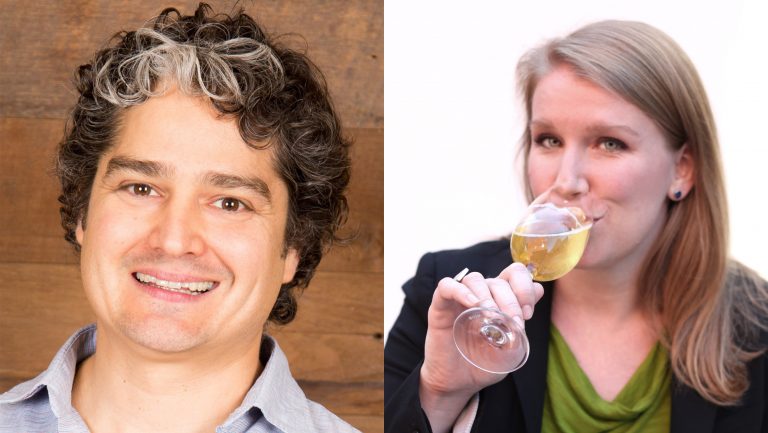
The Search for Answers and Transparency
From the board’s perspective, there was no other choice but to invalidate the exam results. According to Devon Broglie, MS, the chairman of the board of the CMSA, the board’s outside counsel conducted a thorough investigation and determined that Narito had undoubtedly compromised the exam. “There would be no way,” he says, “to determine [down] to a person who may or may not have received the compromising information.”
Shayn Bjornholm, MS, the examination director for the CMSA, agrees with the board’s decision to invalidate the exam. “This [board of directors] is simply too full of wise, sober, [CMSA]-mission-and-vision-consumed, candidate-first, hospitality-minded professionals to have come to such a seismic conclusion without unassailable, complete reason,” he asserts. “Once the email with examination content was sent, and it was clear that there could be no absolute determination of who saw it or heard about it before they walked into that tasting room, invalidation was the only route to protect the Master Sommelier diploma.”
The candidates, however, have pushed back against the investigation’s process and objectivity, noting that it was handled solely by MSs (though supported by outside legal counsel). “I think it’s ludicrous,” says Zimorski, “that the organization that was responsible for the corruption—since a board member compromised the exam—thinks it can investigate itself.”
The details of the investigation have largely been redacted in meeting minutes, but many candidates highlight gaps in procedure and a lack of transparency. For example, Pilkey contacted Young’s Market Company and asked executives there to share with the board Narito’s original email, which includes the Bcc’ed recipients; according to Pilkey, though principals at Young’s Market were willing to do so, the board told them that it did not want or need to review the email. The board’s policy is not to reveal the identity of individuals who were part of any disciplinary process, but many candidates feel that transparency regarding the identities of the email recipients would help exonerate the candidates who had no involvement in the information breach.
The decision to strip candidates of their titles mobilized a concerned group of Master Sommeliers—Dustin Wilson, the New York City–based owner of Verve Wine; Richard Betts, a writer on wine, a mezcal distiller, and the winemaker for brands including An Approach to Relaxation and Sombra Mezcal; Bobby Stuckey, the owner of such spots as Frasca Food and Wine in Boulder, Colorado; Ken Fredrickson, the founder of the wholesale importer Tenzing Wine and Spirits in Chicago; and Jonathan Ross (who is married to Lopes), the founder of Micro Wines in Melbourne—who reached out to the board in October 2018 for more information on the investigation.
“They told us they did a thorough investigation,” says Wilson, “which we found out later comprised only three days of deciding over a weekend. Their ‘investigation’ was saying, ‘We don’t know how we would be able to dig more into this, so we’re just going to pull everyone’s titles.’” The highly redacted meeting minutes shared with members of the court raised red flags as well. “You would think they were coming from the CIA,” says Wilson. “What’s going on here? It’s a wine certification process, not national security.”
According to the board, it “would not be productive” to release specifics about the information breach and the following investigation. But many feel that this stance could allow past misconduct to stay hidden.
“There should be a good amount of transparency between the broader membership and the decisions being made by the board,” says Wilson. “It starts to make us feel like there’s something else going on … It makes us doubt the organization that we’re part of.”
Since October 2018, this group of Master Sommeliers has repeatedly requested more information about the breach, urged reconsideration of the decision to revoke the 23 candidates’ titles, and proposed a number of changes to testing procedures and organizational structures. Wilson reports being “stonewalled” by the board. “It’s created this weird culture of fear and lack of transparency,” he says. “There’s a notion that we have to accept the status quo.”
“It’s the same for the people who already are Masters,” adds Betts. “Each of us has made dozens of personal appeals to our fellow Masters about this issue. We are continually disappointed that people won’t join our call. And why won’t they? Because we don’t even have a place where we can voice our concerns without fear of retribution.”
Broglie disagrees that the board has been unresponsive. “The Court of Master Sommeliers, Americas, has sent dozens of communications to its constituents over the last year,” he says, “including members and candidates. Our lines of communication with our membership have always been and will continue to be open.”
As rumors swirl, several candidates and members wonder whether any evidence of cheating on previous exams has come to light—and what that would mean for current members. “Now the precedent is that if there’s reasonable knowledge that cheating occurred at a previous exam,” says Zimorski, “all those who passed that exam should have their titles invalidated as well? That fact alone should scare membership to its core.”
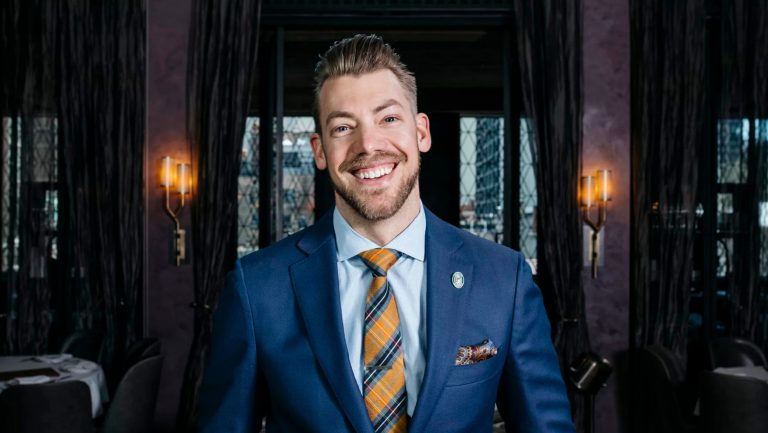
Differing Philosophies of Justice
In September 2019—after Wilson, Stuckey, and Fredrickson appeared in Newsy’s Uncorked documentary—the board agreed to an in-person meeting with membership in New York City. At the meeting, the heart of the debate on the board’s decision became clear: Is it worse to punish those innocent of any wrongdoing or to allow the guilty to go without punishment?
“The board’s perspective continues to be that the integrity of the credential is paramount,” says Broglie, “and that the court is more than any one individual. The board’s unwillingness to risk that even a single individual would hold an unmerited title is based in this belief.”
The dissenting Master Sommeliers and candidates take the opposite position. “I look at it like the justice system,” says Stuckey. “Wouldn’t we rather treat everyone as innocent until proven guilty and make sure every innocent person doesn’t lose their MS pin?” The dissenters assert that the board should exhaust all its resources to exonerate innocent candidates. Betts draws a comparison to major standardized testing proctors like the American Bar Association—would it be able to unilaterally invalidate the results of a bar exam after learning that someone had released several answers?
“The idea,” says Pilkey, “that the only important thing is the sanctity of the exam—which comes at my expense—is ludicrous.” The affected candidates push back with the notion that they weren’t treated as individuals at all, but as a group. Though each candidate had the opportunity to participate in a hearing, which must be offered according to CMSA bylaws, none of the decisions were overturned. “You can’t take a wholesale mentality to this type of group,” says Fredrickson. “It’s just too complex a situation to say ‘All or nothing.’”
Bjornholm, whose position as the CMSA examination director often brings him in close contact with MS candidates, understands why honest candidates are upset. “I suspected immediately that they would be caught in some form of necessary but heart-wrenching cross fire,” he says. Yet he adds that the decision to require retesting from all candidates was merited: “I believe the board of directors has evidence that points to such a probability [that some people may have unfairly passed the tasting exam]. In which case, no benefit of the doubt can be given.”
Alleged Exam Flaws
Retaking the tasting exam is far from straightforward. Much of the exam, according to those who have taken it before, requires mental concentration and confidence, and after the events of last year, the candidates were at a disadvantage. “For the first time, I went in playing defense,” says Pilkey. “I didn’t go in there to win—I went in there to not lose. That’s a huge difference.” Though most of the candidates affected by the scandal chose to retest in December 2018, just six passed (Pilkey did not).
This result—that just 6 of the group passed—highlights flaws of the exam itself, many believe “The tasting portion is the most subjective portion of the exam,” says Fredrickson. Variables such as the graders, the wines, and even body chemistry can affect a candidate’s ability to pass the six-wine, 25-minute exam. It isn’t unusual to have bad tasting days—in Fredrickson’s final practice flight before he passed the tasting exam, he correctly identified just one of six wines.
As highlighted in Uncorked, former CMSA board chairman Joseph Spellman, MS, wrote on social media that the CMSA exam committee “reserves the right to change the sequence or selection or point values/scoring of the wines,” though he then clarified that this was intended to adjust for exam flaws.
Zimorski, who passed the exam in September 2019 and hopes that her reinstated Master Sommelier title will allow her to effect change from within the organization, believes that there are “uncomplicated ways of ensuring that Masters who are examining candidates don’t even know what the wines in the glass are. They could simply write a note based on what the candidate says, and someone else could score it.”
Changes to the exam are being made, says Broglie, and the board is working to reduce the risk of future examination breaches by implementing new procedures, including sequestering proctors’ electronic devices, preventing a proctor and a candidate from being alone together once an exam has begun, and compartmentalizing the examination so that proctors do not have sweeping knowledge of all exam material or final candidates.
But the events of 2018 have caused some to cut ties with the CMSA altogether. “The best way to get over a breakup is to find a new partner,” jokes Pilkey. “For me, the Master of Wine is my new partner.” After corresponding with the Institute of Masters of Wine and passing a preliminary exam, Pilkey was accepted into the Master of Wine (MW) study program in September 2019. So far, he is satisfied with the manner in which the institute’s exams are conducted, including the transparency regarding the wines tasted in exams (wines identities are not revealed after the MS exam) and the practice of blind grading.
Seeking Structural Change
Many believe more radical change is necessary for the CMSA. “We’re self-governed,” says Fredrickson, “and that bothers me.” According to the CMSA’s income tax returns, revenues for the organization—which is classified as a 501(c)(6) not-for-profit organization—were close to $4.5 million in 2017. Given this, Fredrickson and his peers believe that a full-time, nonmember CEO with business experience is warranted.
All CMSA board of directors positions are elected, volunteer, unsalaried roles that may only be held by MSs who have had their MS Diploma for at least three years, giving every CMSA director a personal stake in board decisions. Wilson and Betts say that an additional requirement (of the CMSA bylaws) that potential directors hold Advanced Examiner/Masters Observer status within the organization and agree to teach or examine during at least four exams or courses per year severely limits the number of members who are eligible to run for board positions.
“It’s an insiders’ club of people who have a lot of time to dedicate to teaching,” says Wilson, noting that of the group of five concerned MSs who are petitioning for change, none are eligible to run for the board, despite their experience and reputations in the industry. “It limits the scope of perspective of the group running the organization.”
These MSs also see the lack of a human resources component as problematic. “This would have been a perfect example of when HR could come into play,” says Fredrickson. “This gap in organizational structure goes beyond the issue of exam security; it leaves room for many kinds of misconduct to go unreported and uninvestigated.”
The board says that these types of changes are now being made within the CMSA. At the beginning of 2019, the organization joined the Institute of Credentialing Excellence, which promotes best practices for organizations that accredit certifications. The CMSA board also recently created a committee to hire additional examination and operations support and explore the possibility of hiring an additional executive from the outside (not an MS), and it has vetted several companies that offer human resources support for membership-based organizations, with plans to hire one.
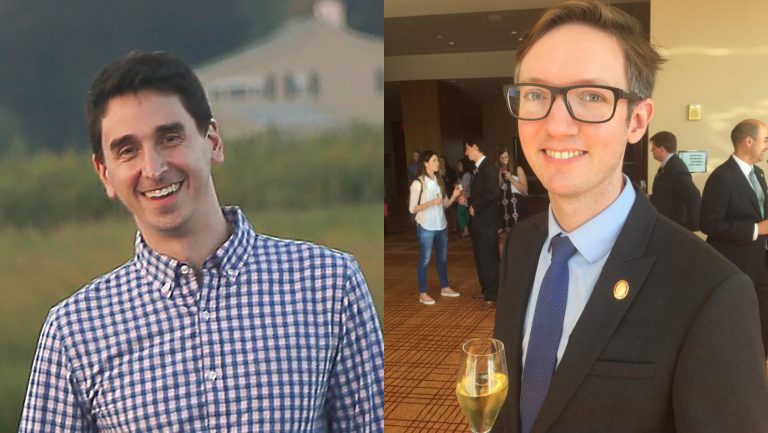
What’s Next?
For many, the 2018 exam scandal is receding in the rearview mirror—but not for the affected candidates. “I go to a lot of different markets,” says Bothwell, “and everywhere I go, this follows me.” (Bothwell has decided not to sit the exam again.)
It’s important to note that in addition to the prestige conferred by the MS title, significant financial opportunities are afforded by the initials. According to a GuildSomm survey published in July 2018, the median income for Master Sommeliers at the time was $164,000—nearly double the median income of Advanced Sommeliers. “[The decision to invalidate] has taken a lot from my [potential] income already,” says Steven Washuta, the wine director at Portale in New York, who also lost his title. “It has been a big disadvantage in my career.”
Pilkey, meanwhile, continues to pursue the justice be believes he was denied. When he continued wearing his MS pin and using the initials on his social media accounts, asserting that he passed the test fairly, the CMSA responded by filing a suit against him, in June 2019, claiming trademark infringement regarding misuse of the term Master Sommelier, as the court owns all rights to the title. On December 9, 2019, a San Francisco magistrate judge determined that the Northern District of California did not have jurisdiction over the case, dismissing it entirely. Pilkey has sent another letter to CMSA based on the case’s dismissal, requesting that all fairly earned MS titles be reinstated.
“I’m into hospitality, and hospitality is about always thinking about the other person,” says Stuckey. “The way we have treated these candidates doesn’t do that.” Though Stuckey has taught the Advanced Sommelier course throughout his 15-year tenure as a Master Sommelier, he will not do so again until changes have been made—he believes business as usual is incongruous with the hospitality tenets espoused by the CMSA.
“If something like this [situation] can’t change someone’s feelings or perception, then that’s a sad state of affairs,” says Zimorski. As a newly reinstated member of the court, however, she hopes to use her position to encourage positive change. “I believe in the idea of the court,” she adds. “I would encourage every person involved in any level of certification with the CMSA to talk about this, ask questions, and demand better.”
Indeed, many of those involved in the debate—affected candidates, the group of dissenting Master Sommeliers, the board of directors—have a similar goal: to see the CMSA grow in a positive and enduring way. “My goal,” says Fredrickson, “would be for this organization to become stronger, and anything that I bring forward is a challenge with an expected build from that challenge.”
That feeling is not unanimous, though, so the future of the court remains unclear. Says Wilson, “We’re a little fearful of where the organization is going to be in the next few years if things don’t change soon. Is the Master Sommelier title still going to hold the weight it holds today?”
Some actually see the unfortunate decision to invalidate the 2018 results as proof of the Master Sommelier title’s airtight strength. “People can rest assured,” says Bjornholm, “that our titles are given only to the deserving after seeing what lengths we will go to protect them. This once-in-50-years tragedy will inspire us to fight harder to realize our mission and vision statements.”
As new MS hopefuls prepare for future exams, and members of the CMSA push to strengthen the organization as a whole, where does this leave the candidates whose titles were rescinded? Pilkey discovered through his legal proceedings that their titles were not, in fact, “stripped.” Their official status within the organization is currently listed as “suspended,” leaving them in an unresolved limbo.

Dispatch
Sign up for our award-winning newsletter
Don’t miss the latest drinks industry news and insights—delivered to your inbox every week.
Courtney Schiessl Magrini is the editor-in-chief for SevenFifty Daily and the Beverage Media Group publications. Based in Brooklyn, she has held sommelier positions at some of New York’s top restaurants, including Marta, Dirty French, and Terroir, and her work has appeared in Wine Enthusiast, GuildSomm, Forbes.com, VinePair, EatingWell Magazine, and more. She holds the WSET Diploma in Wines. Follow her on Instagram at @takeittocourt.

